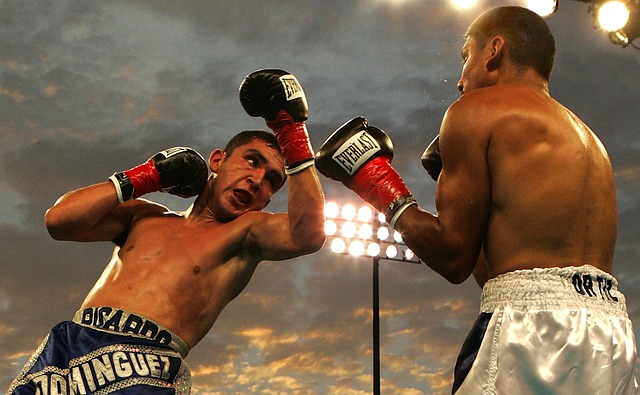Combat sports like Mixed Martial Arts (MMA) and boxing have become some of the most dynamic and profitable arenas for sports bettors. With global promotions like UFC and high-profile boxing matches drawing millions of viewers, betting on fights has surged in popularity. But unlike team sports, combat sports bring their own unique set of risks, odds structures, and strategic considerations. If you’re looking to bet on MMA or boxing in 2025, it’s essential to understand how these markets work, what influences outcomes, and how to manage your risk.
Understanding the Basics of Fight Betting
Before diving into specific strategies, you need to know the common types of bets available in MMA and boxing:
- Moneyline: The simplest and most popular bet—picking who will win the fight. A favorite might be listed at -150 (you must bet $150 to win $100), while the underdog could be +130 (bet $100 to win $130).
- Method of Victory: Predicting not just who wins, but how—by knockout (KO/TKO), submission, or decision. These bets offer higher payouts but are riskier.
- Round Betting: Choosing in which round the fight will end or if it will go the distance.
- Over/Under Rounds: Betting on whether the fight lasts longer or shorter than a set number of rounds (e.g., Over 2.5 rounds).
- Parlays: Combining multiple bets for increased odds and payout—useful but significantly more volatile.
Understanding the rules and format of each promotion (UFC vs Bellator vs boxing sanctioning bodies) is critical, as different scoring systems and fight lengths can affect the outcome.
Key Factors That Influence Fight Outcomes
Betting on combat sports requires more than just knowing a fighter’s win-loss record. Many subtle elements influence how a bout might unfold. Among them:
- Fighter Styles: Striker vs grappler, brawler vs counter-puncher—understanding matchup dynamics can often reveal how a fight will play out. Styles truly make fights.
- Cardio and Conditioning: In MMA and boxing, fatigue changes everything. A fighter known to fade in later rounds might not survive a decision against a more durable opponent.
- Reach and Height Advantage: Especially in boxing, reach matters. A longer reach helps keep opponents at bay and can dictate the pace of the fight.
- Recent Performance and Layoffs: Has the fighter been active or coming off an injury? Momentum and ring rust are real.
- Weight Cuts: Poor weight management can drastically affect a fighter’s stamina and durability—research their weigh-in history and how well they perform after cuts.
- Fighting Location: Some fighters perform poorly when fighting abroad due to jet lag or unfamiliar environments. Crowd support can also influence judges’ decisions in close fights.
These are just a few examples of data points that successful bettors track regularly.
Boxing vs MMA: Differences in Betting

While MMA and boxing are both combat sports, betting on them differs in subtle but important ways:
- In MMA, there are more ways to win—knockout, submission, or decision—which makes outcomes harder to predict. The smaller gloves and multiple disciplines also make upsets more likely.
- Boxing generally has fewer surprises, but the judging can be controversial. Home-country fighters or well-known boxers often get favorable scorecards in close matches.
- MMA cards tend to feature more evenly matched fights, while boxing often pits elite fighters against underdogs. This affects betting value and payout opportunities.
Live Betting and Prop Markets
One of the fastest-growing trends in fight betting is live or in-play wagering. These allow you to place bets as the fight progresses:
- If a fighter starts strong but fades, you might catch value betting against them live.
- Watching momentum shifts or visible injuries can provide a real edge in making decisions mid-fight.
Additionally, prop markets (proposition bets) like “Will the fight end in Round 1?” or “Will Fighter A land more strikes?” are increasingly available—especially in MMA—and can offer high-risk, high-reward options for sharp bettors.
Managing Risk in Fight Sports
Fight sports can be extremely volatile. A single punch can change everything. To manage your risk:
- Avoid overcommitting on heavy favorites. Upsets happen more frequently than you might expect.
- Don’t chase losses with wild parlays.
- Stay disciplined with your unit sizes—never risk more than a small percentage of your bankroll on a single wager.
- Diversify your bets (e.g., a mix of method bets, moneylines, and over/unders).
- Track your bets and review your performance to refine your strategy over time.
Research Matters More Than Hype

Public hype and promotional marketing often distort the betting lines. A fighter with media buzz might be overvalued, while a low-profile but technically skilled fighter might offer real value.
To gain an edge:
- Watch actual fights and film—don’t rely solely on stats.
- Follow training camp updates, injury reports, and insider interviews.
- Read analysis from respected MMA and boxing experts—not just fan predictions.
This extra effort pays off by helping you identify mispriced odds and avoid traps set by public betting trends.
Final Thoughts
Betting on MMA and boxing offers an exciting blend of strategy, risk, and adrenaline. It’s a niche market with unique dynamics, where knowledge and timing can make all the difference. By understanding fighter styles, betting markets, and managing volatility, you’ll be better equipped to place smart, calculated bets.
Whether you’re a seasoned bettor or just starting out, always approach combat sports betting with discipline and research. Remember: in a world where anything can happen in a single round, staying informed is your best defense—and your greatest advantage.
